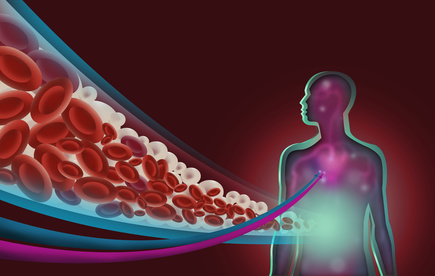What is glycogen?
Simply put, glycogen is the storage form of carbohydrates in the body. When carbohydrates are eaten, they are broken down by the digestive system into glucose and enter the blood stream. Once glucose enters the blood stream, it is available for immediate energy (exercise) needs. If it is not used for immediate energy needs, it is either stored into the liver or muscle tissue, or, converted into body fat for long-term storage.
Muscle glycogen
The types of carbs that are stored in the muscle tissue are polysaccharides, or complex carbs. Examples of complex carbs include rice, grains, potatoes, oatmeal, and vegetables. How much glycogen storage “room” a person has is in direct relationship with how much lean tissue (muscle) they have. In other words, the more muscle mass you have, the more carbs you can afford to eat without them being converted to body fat. This is one reason why I can’t stress enough that if you want to lose weight (especially females) you need to LIFT! check out my post about women and fat loss. http://amandacomstock.wpengine.com/women-fat-loss/
In addition, how fast you deplete muscle glycogen is determined by intensity, duration, and frequency of exercise. The faster you deplete, the faster your body will tap into fat stores for energy use – which is the goal, right??
Liver glycogen
Unfortunately storage capacity in the liver is limited to about 50 grams of carbs per day for the average person. The carbs stored in the liver are fructose, or simple sugars, rather than the complex carbs. Examples of fructose include fruit, honey, fruit juice, table sugar, sweets, and worst of all high fructose corn syrup. If you consider the body’s storage capacity at 50 grams per day, this is equivalent to one 12 ounce soda and no more. Anyone who reads food labels knows that sugar and HFCS are in practically everything these days…why do you think this country has an obesity epidemic?…
How this information pertains to getting a tight lean body
Clearly simple sugars should be minimal on most days for anyone who is serious about getting a tight lean body. Except for the occasional cheat dessert (occasional meaning once a week) simple sugars ought to be limited to fruit only. I recommend complex carbs be eaten following a workout. This will replenish muscle glycogen levels, build and repair muscle, and restore your energy. It is not recommended to go extremely low carb, as this is not helpful for building muscle. Very low carb diets, especially for extended periods of time, will leave an active person feeling sluggish and tired, lower performance capabilities, brain fog, and looking flat.
Getting the proper nutritional ratios can be tricky, but with the right balance and adjustments your goal can be obtained.
